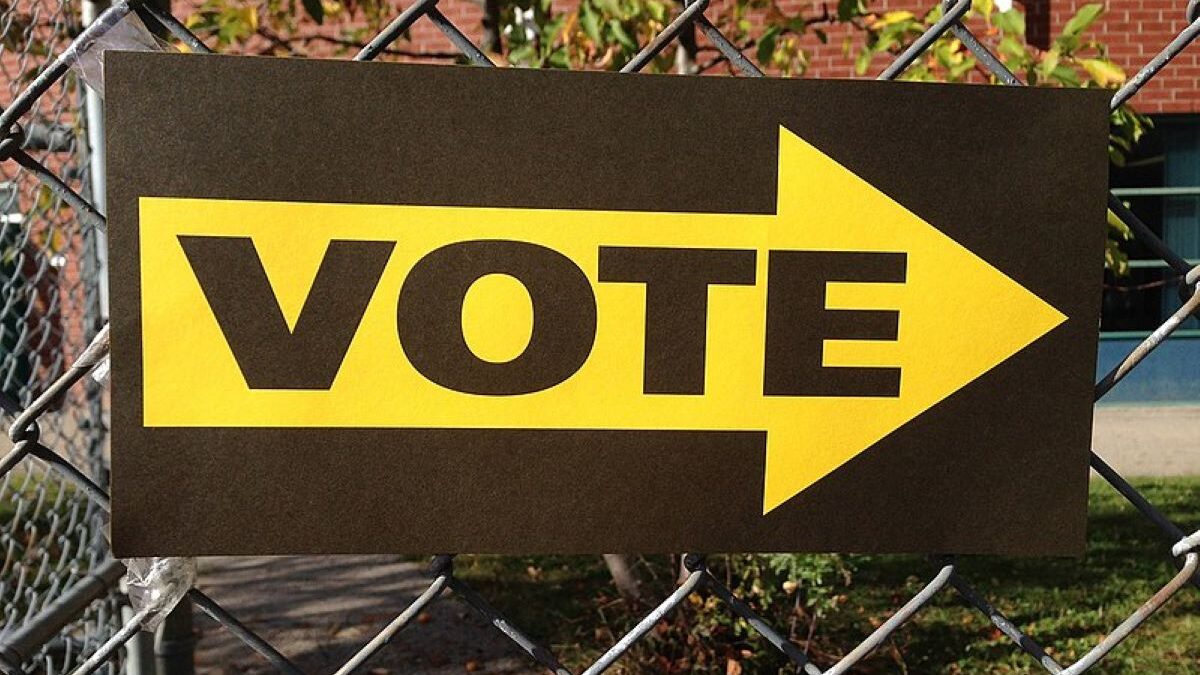Ranked-choice voting (RCV) advocates are circulating incredibly misleading messaging about what the deceptive system actually is ahead of a Wisconsin Senate hearing on legislation attempting to bring RCV to the state.
Under RCV, often dubbed “rigged-choice voting” by its critics, voters rank candidates in order of preference. If no candidate receives more than 50 percent of first-choice votes in the first round of voting, the last-place finisher is eliminated, and his votes are reallocated to the voter’s second-choice candidate.
Obtained by The Federalist, a memo produced by Democracy Found, a Wisconsin-based RCV advocacy group, attempts to mislead voters and legislators about how a top-five ranked-choice voting system would actually work. Similar to Alaska’s top-four RCV elections, a top-five RCV system would create a jungle-style race in which candidates from different parties would run in the same primary. The top five vote-getters would then advance to the general election, in which RCV would be used to determine the winner.
Bills (AB 563 and SB 528) proposing such a system for Wisconsin’s congressional primaries and general elections are currently being considered by the state’s legislature, with a Senate committee hearing on SB 528 set to occur on Tuesday.
In its memo titled, “Factual Correction: Final Five Voting (FFV) and Ranked-Choice Voting (RCV) are Not the Same,” Democracy Found deceptively attempts to argue that a top-five primary and RCV are completely separate systems, despite admitting the two are inextricably linked. After describing how a top-five primary works, the group dovetails into discussing the instant-runoff general election that would follow, which Democracy Found admits would require voters to use a “grid-style, ranked ballot … [to] pick their favorite candidate [and if] they want to … their 2nd, 3rd, 4th, and last place candidates” as well.
In other words, the top-five system advocated for the group would implement an RCV system for Wisconsin’s general elections.
Democracy Found tries to sweep this fact under the rug by claiming RCV is “often used as a synonym for an Instant Runoff because an Instant Runoff election is enabled by a ranked-choice ballot” and “is an umbrella term that can mean different things.” The group also baselessly asserts that RCV “make[s] elections more fair and more democratic.”
“Instant Runoff is more precise, and Instant Runoff General Election, not RCV, correctly describes what we propose in WI as the Part 2 of FFV,” the memo reads.
Democracy Found’s dishonest messaging falls in lockstep with that advised by pro-RCV advocates. A polling memo previously obtained by The Federalist revealed that RCV proponents are searching for ways to deceive voters into adopting the system for their elections throughout the country. Among the talking points found to be the most effective at bringing voters on board with the system are those centered around the concept of “fairness.” Meanwhile, arguments that the system would result in California-style primaries — similar to the top-five system pushed by Democracy Found — appear to work best in generating opposition to RCV.
“RCV advocates have clearly realized that promoting RCV on the merits is not working, which is why proponents are resorting to pie-in-the-sky arguments about ‘fairness’ and somehow claiming that final-five voting isn’t RCV, even though RCV is an integral component of final-five voting,” Honest Elections Executive Director Jason Snead said in a statement. “At the end of the day, RCV is unpopular because it makes voting harder and the public don’t understand or want it.”
Amid RCV proponents’ push for the system in Wisconsin, a coalition of election integrity organizations recently issued a letter warning the state’s GOP legislative leadership about how a top-five RCV system would produce “confusing, complex, and costly” electoral contests and mark a “devastating” blow to “the integrity of Wisconsin elections.” The groups also highlighted how RCV disenfranchises voters and often produces results that contradict the desires of voters.
During Alaska’s 2022 special election for its at-large congressional district, for example, nearly 15,000 votes were deemed “exhausted” and discarded. Of these nearly 15,000 ballots, more than 11,000 were from voters who “voted for only one Republican candidate and no one else,” according to an analysis from the Foundation for Government Accountability. In that same election, Democrat Mary Peltola won the seat even though “nearly 60 percent of voters [cast] their ballots for a Republican.”
The system also played a major role in helping GOP Sen. Lisa Murkowski fend off a challenge from a more conservative candidate that same year.
In light of the push for RCV in Wisconsin, a coalition of GOP state lawmakers have since proposed a constitutional amendment to prohibit the use of RCV in the state. Under the Wisconsin Constitution, if the legislature approves a constitutional amendment proposal in two consecutive sessions, it will then go to the voters for final passage.








